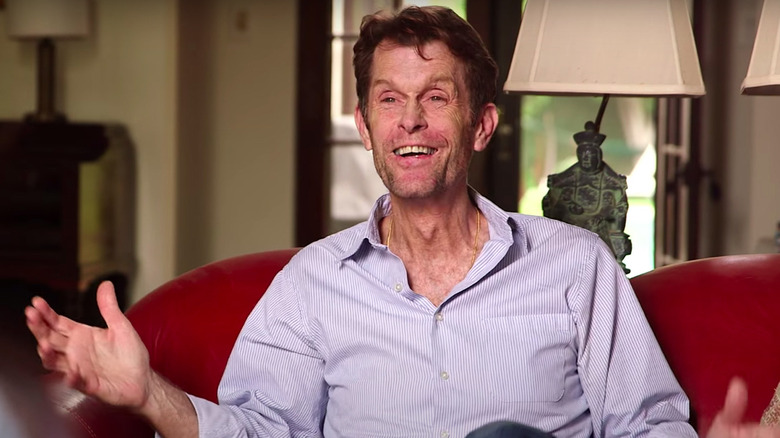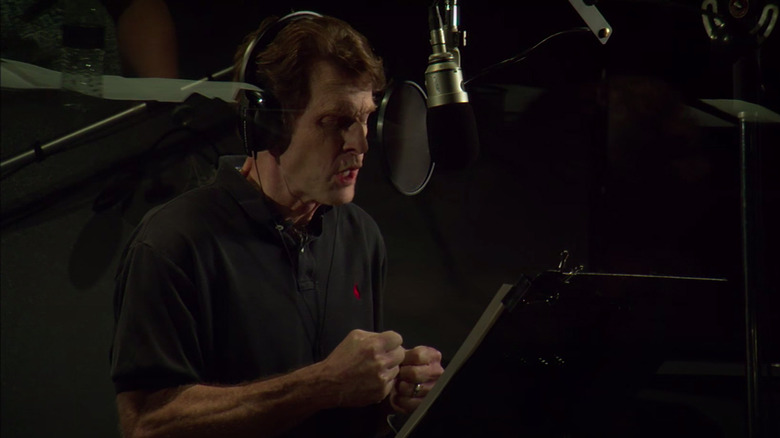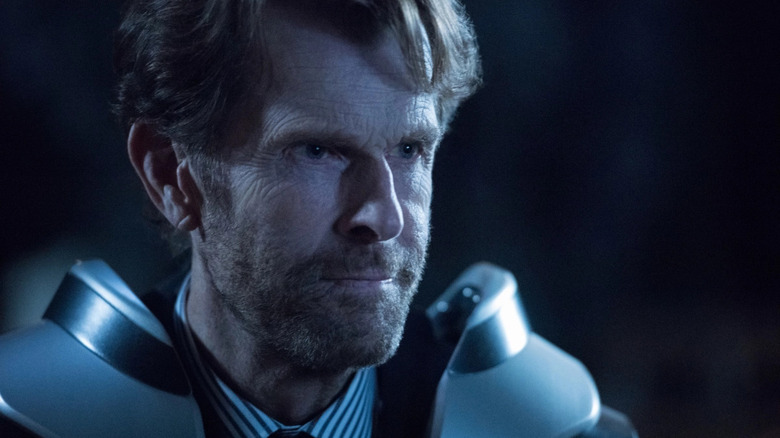For Kevin Conroy, Batman Was A 'State Of Mind'
Today the comics community is mourning Kevin Conroy, the voice of Batman for a generation. Starting with "Batman: The Animated Series" in 1992, Conroy went on to perform as the Dark Knight in almost 60 projects, including 15 films, 15 animated series, and two dozen video games. He even appeared in live-action as Bruce Wayne in the Arrowverse's "Crisis on Infinite Earths" crossover event. It's hard to overstate the legacy he has left for DC fans. Conroy's work wasn't just a voice on a few shows; he brought so much depth to the role of this complicated superhero.
Back in 2014, Conroy spoke to DC.com about his Bat-career and his approach to the character. He talked about how fans have been coming up to him, telling him how his work affected them growing up and how they were introducing their own children to it. "People talk about Batman on such an intimate, adult level," he said. "You're not talking about a cartoon. You're really talking about a character who's very close to a lot of people."
Batman is one of those characters that we just get. Everyone can relate to the idea of your inner personality and what you show to the world being different, even if we don't go out there and fight crime in a cape. Conroy's take on Batman really drove home the difference in both sides of Bruce/Batman, and left the image of the Bat-signal in our hearts.
'You really need to invest it with a lot of emotion'
Conroy told DC.com that he had auditioned for a bunch of other roles, but Emmy Award-winning casting director Andrea Romano told him that he should want to play Batman. He asked if he could try something different with the voice so that there was more of a delineation between the playboy Bruce Wayne and his alter ego. That alone made a huge difference. Some of us grew up on reruns of the 1960s series starring Adam West, often dubbed the Bright Knight because the show was campy and silly. It was so much fun to watch — don't get me wrong. It's just that Conroy's work in the animated series reflected the comic book far better than that series ever did.
When he was asked about whether or not his approach to the character had changed over the years, or if it was just second nature by now, Conroy replied:
"It's pretty second nature, but Batman ... He's a complicated guy, and that voice can't be just a quirky voice that you as an actor put on. It's a state of mind that you have to get into because that voice comes from such a deep well of pain. If you don't really do it genuinely, it sounds artificial. It sounds like you're just putting on a funny voice. You really need to invest it with a lot of emotion and a lot of backstory. At least, that's what I've found. Or maybe that's just me. After all, I'm an actor and I come from a pretty serious theater background. So maybe I'm just reading all that into it."
'From such a deep well of pain'
We all have a Batman voice that we use for fun. I have been known to walk up behind friends and scare them by saying, "I'm Batman" in their ear. You've probably done the same. We do it to be silly, but when you're representing the history of not only the comics but the character's meaning to everyone, you take it seriously.
Batman matters to so many of us who grew up with him. He wasn't bright and shiny like Superman. He wasn't endlessly compassionate like Wonder Woman. He was messy like the rest of us. Bruce/Batman had a terrible history. He saw his parents murdered in front of him. He wanted to change the world because of it. The show and projects after it would deal heavily with his grief and PTSD. Conroy's work truly proved that an animated character could be so much more than a Saturday morning cartoon.
Thank you, Kevin Conroy, for taking a character we cared about and making us love him more. Thank you for not just relying on a funny voice and bringing such empathy and emotion to Bruce/Bats. Rest in peace.


